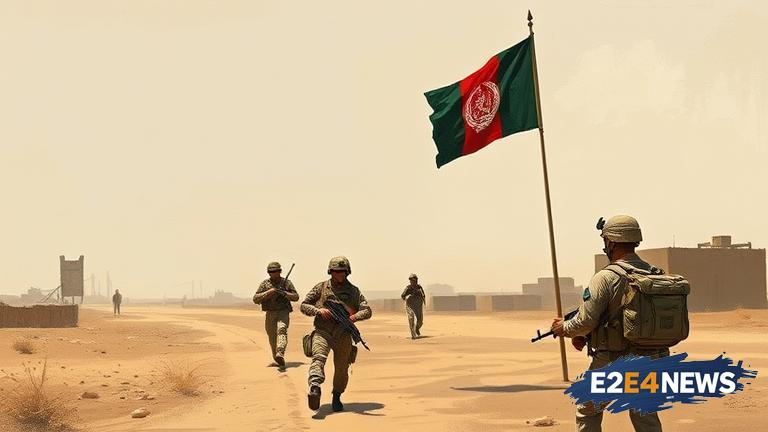The US withdrawal from Afghanistan, which was completed in August 2021, marked the end of a 20-year military presence in the country. The decision to withdraw was made by the Biden administration, which cited the need to end the ‘forever war’ and focus on more pressing national security threats. However, the withdrawal has been widely criticized, with many arguing that it was premature and has emboldened the Taliban. The Taliban, a militant Islamist group, has been waging a insurgency against the Afghan government since 2001. With the US withdrawal, the Taliban has made significant gains, capturing large swaths of territory and imposing its harsh interpretation of Islamic law on the population. The humanitarian situation in Afghanistan has also deteriorated, with millions of people displaced and in need of aid. The US withdrawal has also raised questions about the country’s ability to counter terrorism, with many experts warning that the Taliban’s victory could embolden other extremist groups. The Afghan military, which was trained and equipped by the US, has struggled to hold back the Taliban’s advances, leading to concerns about the country’s stability. The US withdrawal has also had significant regional implications, with neighboring countries such as Pakistan and Iran seeking to exploit the power vacuum. The international community has called for a peaceful resolution to the conflict, but a lasting solution remains elusive. The US withdrawal from Afghanistan has also sparked a debate about the use of military force and the limits of US power. Many have argued that the US should have maintained a residual force in Afghanistan to prevent the Taliban’s return, while others have argued that the war was unwinnable and that the US should have withdrawn sooner. The legacy of the US war in Afghanistan will likely be debated for years to come, with many questioning whether the investment of blood and treasure was worth the cost. The US withdrawal from Afghanistan has also raised questions about the country’s commitment to its allies, with many Afghans feeling abandoned by the US. The US has pledged to continue providing humanitarian aid to Afghanistan, but the country’s long-term prospects remain uncertain. The Taliban’s victory has also raised concerns about the treatment of women and minorities, who faced significant repression under the group’s previous rule. The international community has called on the Taliban to respect human rights and form an inclusive government, but it remains to be seen whether the group will heed these calls. The US withdrawal from Afghanistan has significant implications for global security, with many experts warning that the Taliban’s victory could have far-reaching consequences. The US and its allies must now confront the reality of a Taliban-controlled Afghanistan and develop a strategy to mitigate the risks. The US withdrawal from Afghanistan is a complex and multifaceted issue, with no easy solutions. However, by examining the consequences of the withdrawal and the implications for the region and the world, we can better understand the challenges that lie ahead. The US withdrawal from Afghanistan has sparked a necessary debate about the use of military force and the limits of US power. As the international community seeks to address the humanitarian and security challenges posed by the Taliban’s victory, it is clear that the consequences of the US withdrawal will be felt for years to come.
